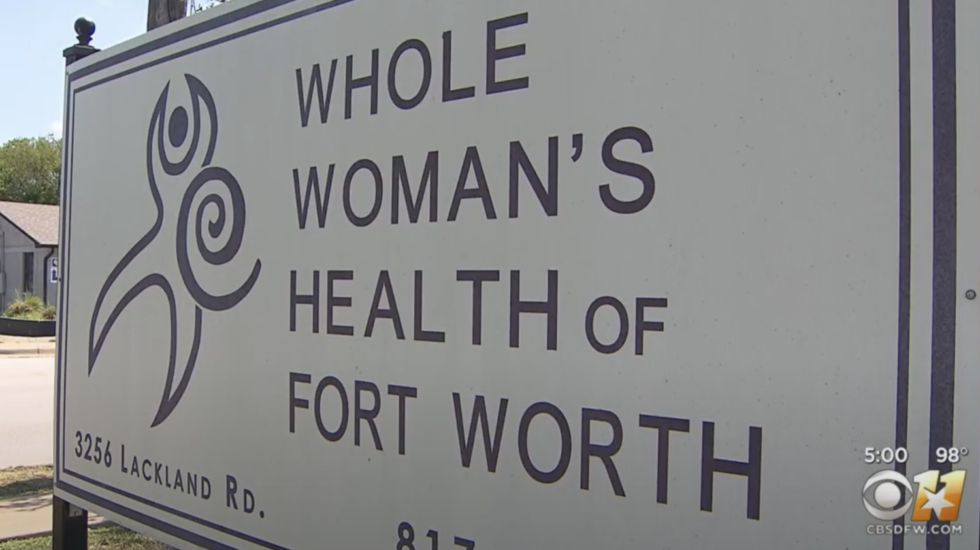The most restrictive abortion ban in the nation became Texas law at the stroke of midnight on September 1st. Twenty-four hours later, the Supreme Court rejected an emergency appeal to block the prohibition, which makes it illegal to perform an abortion after a fetal heartbeat is detected. That’s usually at the six-week mark of pregnancy, before many women even know they’re carrying. Consequently, the law would prohibit nearly all abortions in the state, according to Planned Parenthood and Whole Woman’s Health.
The day before the ban took effect, staff at Whole Woman’s Health Fort Worth clinic worked around the clock to perform 117 abortions. Outside “anti-abortion protesters jeered and flooded the parking lot with bright lights,” according to Bloomberg.
“Clinic staff saw the protesters taking photographs of people coming and going and writing down license plate numbers — information that they might now use in court against clinic staff or anyone else who helps a woman get an abortion after six weeks,” the outlet adds.
Amy Hagstrom Miller, head of Whole Woman’s Health, said she was “under surveillance.” On Wednesday, she added, “The tragedy is we can only provide abortions for about 10% of the people we were able to provide for yesterday.”
Indeed, Texas women are already feeling the impact.
According to NBC News, “Since mid-August, all 11 of the Planned Parenthood health centers in Texas that provide abortion services have stopped scheduling visits after Sept. 1 for abortions past six weeks of pregnancy.”
That’s left many women in limbo.
The Houston Chronicle reports:
Abortion providers say they were flooded with calls Wednesday from people asking how to obtain services, given the new law. Callers waited in queues for about 30 minutes before getting an answer from Gulf Coast Planned Parenthood in Houston. As they waited, a voice assured over and over, “If you are impacted by this new ban we can still help connect you with resources to obtain care out of state.
Similarly, Dr. Bhavik Kumar, an abortion provider at the Planned Parenthood Center for Choice in Houston, had to turn away patients since the law was enacted. “One patient was very distraught and did not expect to be as far along as she was, and so the staff spent a good amount of time helping her think about other options and places out of state,” Kumar told The Texas Tribune. “When you’re told your only option is to go to another state and travel and all the logistics involved with that, it’s very distressing.”
Abortion providers in neighboring states are already trying to manage the overflow.
KXAN Austin reports, “Trust Women clinic in Oklahoma says it typically gets three to five calls from Texans per day. In the last two days, they’ve gotten 50-55 calls from Texans.”
“Not everyone who needs an abortion at this time is going to be seen,” Rebecca Tong, Trust Women clinic’s acting co-executive director, told KXAN.
Here’s coverage from KTVT-TV in Ft. Worth
